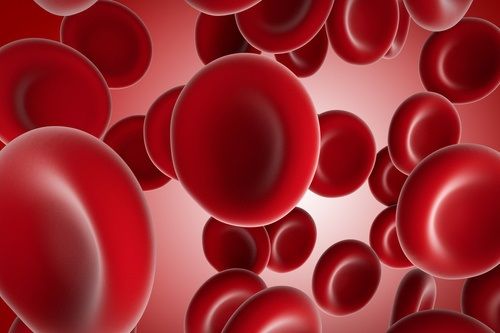Blood Test Panel Could Screen for Coronary Artery Disease
A Mass General team reports high accuracy with non-invasive CAD test.

A newly developed clinical and biomarker test and scoring system showed high accuracy in predicting the presence of coronary artery disease (CAD). The system allows physicians to use two clinical traits of patients in combination with the results of biomarker assays to predict which patients have CAD with an accuracy of over 70%.
Reporting in the Journal of the American College of Cardiology James Januzzi, MD of Massachusetts General Hospital and colleagues there and at other institutions said they set out to find a non-invasive way to accurately screen for the condition, one that affects nearly 1 in 5 people over age 65 in the US.
The team noted that though clinicians currently use stress testing on patients thought to be at risk, and may or may not also do diagnostic imaging, there are drawbacks.
For stress testing those include “variable sensitivity and specificity, limitations with respect to accuracy in certain types of body habitus—including overweight or obese patients and women—as well as the need to use ionizing radiation.”
They argued that CT angiography has similar drawbacks and that using imaging on a large number of patients suspected of having CAD would not be practical.
Even without those problems, there is the issue of expense. “Both stress testing and CT imaging come with the challenge of high costs,” they wrote.
They propose that clinically significant CAD can be identified with a clinical and biomarker scoring system, but the existing models for doing that “lack discrimination for anatomically significant CAD.”
Adding genetic testing helps as does looking for differences in several circulating proteins.
The researchers set out to see if they could identify clinical and biomarker predictors in an at-risk population of subjects whose catheter-sampled blood had been archived. The study was called CASABLANCA.
Their hypothesis was that adding plasma biomarkers to known clinical risk factors might result in an accurate system of predicting clinically significant CAD.
They selected 927 patients from the CASABLANCA group who had received a coronary angiogram.
Then they divided that group into a training set (649 patients) and a holdout validation set (278 patients).
Their CAD scoring system looked for independent predictors of CAD. The clinical variables are male sex and having had a previous percutaneous coronary intervention. The predictive biomakers are midkine, adiponectin, apo C-I and KIM-1.The research team had considered more than 100 potential biomarkers but settled on those 4.
Taken together, they explained, the biomarkers chosen “represent a unique pathophysiological mix of vascular injury and plaque inflammation (midkine), abnormal glucose and fatty acid metabolism (adiponectin), hyperlipidemia (apo C-I), and renal dysfuntion or injury (KIM-1).
The combined scores “strongly predicted severe CAD in all subjects.” The test score is called HART CAD.
Next they looked to see if there were differences in how well the scoring system worked in subgroups.
The system proved an accurate way to predict CAD with a sensitivity of 77% overall. In subjects with a history of CAD the score was 84% sensitive and in subjects with no history it was 78% sensitive.
According to a news release from the test manufacturer, “The data demonstrated high accuracy for the score to predict the presence of significant coronary obstruction” with a an area under the receiver operating characteristic curve of 0.87, and had a 90% positive predictive value for a one cut-off score. In an alternative five score models, a score of 5 produced a positive predictive value of 93% and a score of 1 produced a negative predictive value of 91%.
In conclusion, the team wrote in the journal article, “We have developed a clinical and biomarker scoring strategy to reliably diagnose severe epicardial CAD,” one that could prove cost-effective and relatively easy to scale up.
The system might identify patients who need treatment to prevent CAD-related complications, such as putting them on anti-platelet or lipid-lowering therapy.
The test kit is made by Prevencio, Inc, based in Kirkland, Washington. It is being evaluated by the US Food and Drug Administration.